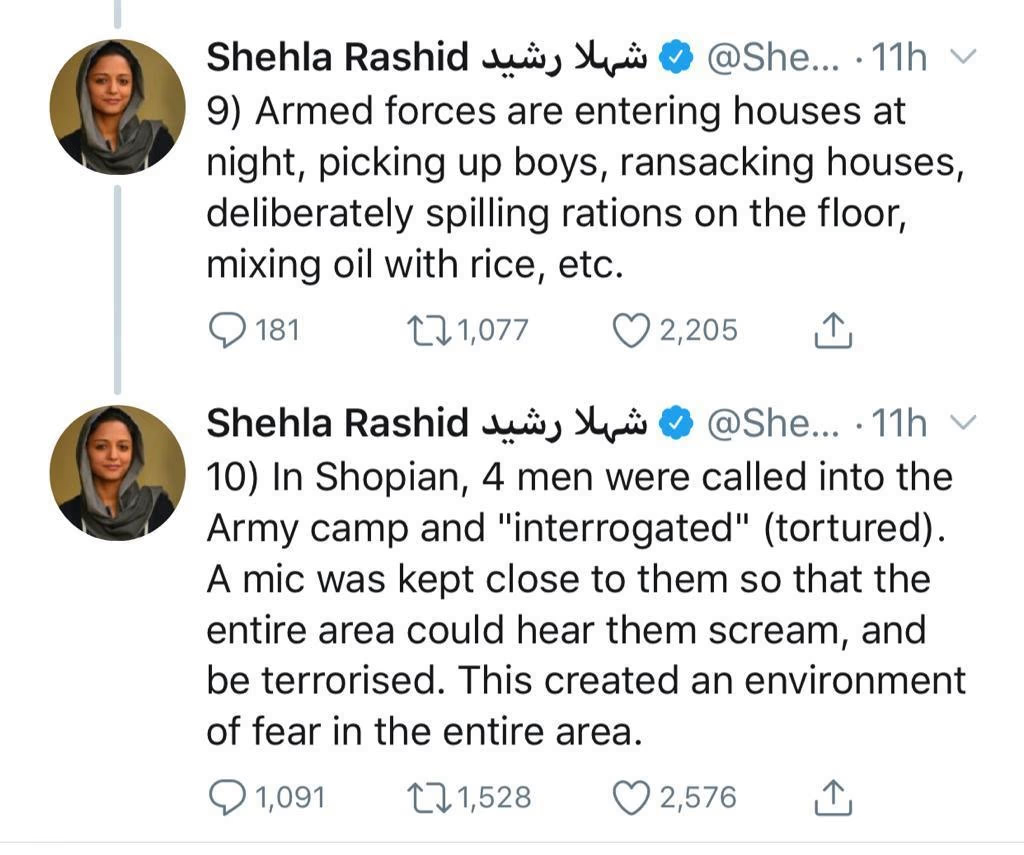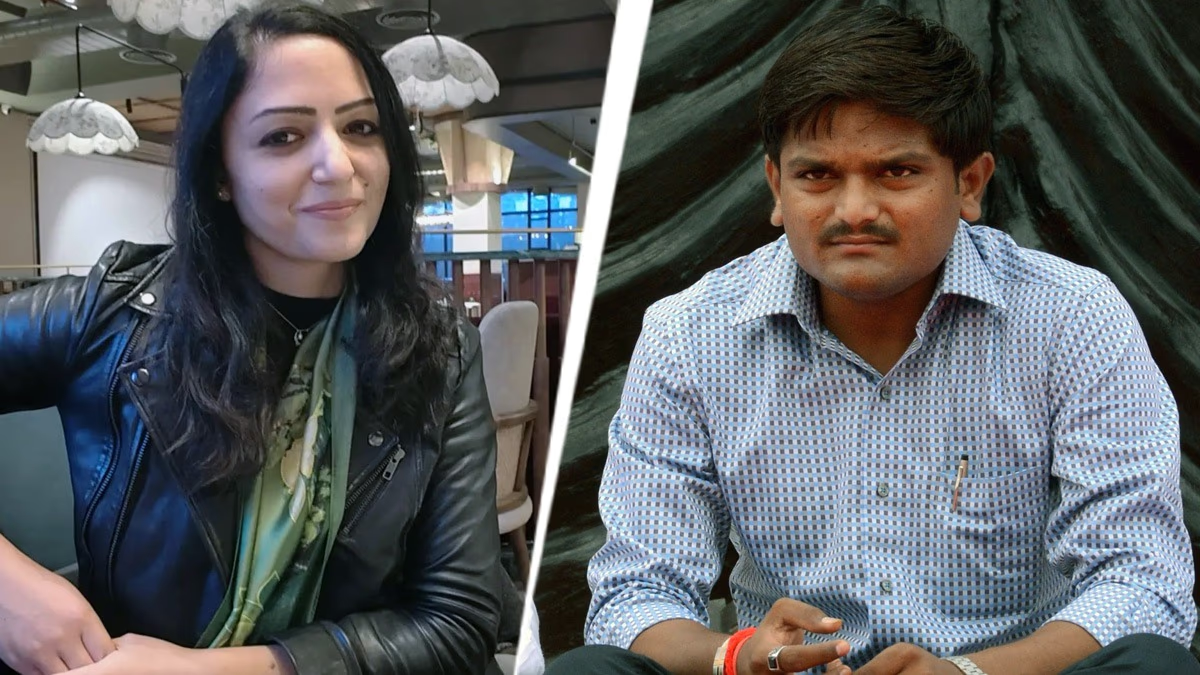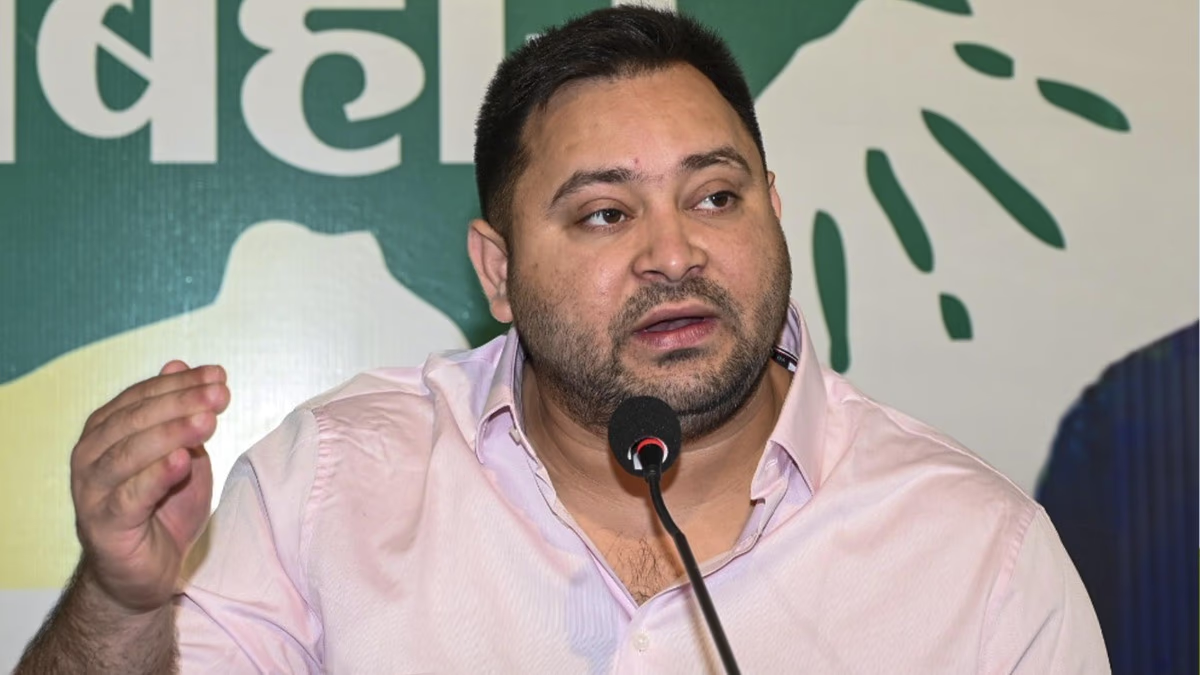In the past week, significant developments surfaced from India’s court corridors. The sedition cases against former JNU student leader Shehla Rashid and Patidar movement leader Hardik Patel, once outspoken critics of Prime Minister Narendra Modi’s central government, have been withdrawn.
Shehla Rashid, a former JNU student leader, was a vocal critic during Modi’s rise in Indian politics. However, her stance has shifted in recent years, supporting central policies, particularly those related to Jammu and Kashmir.
In 2015, Hardik Patel was the face of the violent Patidar movement in Gujarat, opposing the BJP government. Yet, his political journey came full circle as he joined the BJP, currently serving as an MLA from Viramgam, Gujarat.
Let us delve into the sedition charges against Shehla Rashid and Hardik Patel, their origins, and how they were ultimately revoked.
Shehla Rashid, JNU, and Controversy
Shehla Rashid gained political prominence when she became active in student politics at Jawaharlal Nehru University (JNU), where she was elected Vice-President of the JNU Students’ Union (JNUSU) in 2015-16. A member of the leftist student organization AISA, Shehla emerged in national discussions.
On February 9, 2016, an incident occurred at JNU where "anti-national" slogans were allegedly raised, leading to the arrest of student leaders Kanhaiya Kumar and Umar Khalid. Shehla led movements for their release, gaining widespread attention.
Her views on secularism, the rise of right-wing politics, student activism, and BJP criticism resonated with young people, making her a frequent guest on television debates.
It’s noteworthy that the sedition cases withdrawn against Shehla have no relation to the JNU incidents.
Why Shehla Faced Sedition Charges
Shehla was also a critic of central policies regarding Jammu and Kashmir. On August 5, 2019, when the Modi government abrogated Article 370 in Jammu and Kashmir, Shehla alleged Indian Army atrocities against citizens in a series of tweets.
On August 18, 2019, Shehla posted several controversial tweets against the military, accusing them of misconduct in Kashmir.

Source: aajtak
In one tweet, she claimed, 'Armed forces are entering houses at night, abducting boys, vandalizing homes, scattering food, mixing oil with rice on purpose.'
According to complaints, another tweet mentioned, 'In Shopian, four men were called to an army camp and tortured, with microphones amplifying their screams across the area, creating an atmosphere of fear.'
The army refuted Shehla's allegations, branding them false. The Delhi Police's Special Cell filed charges under IPC Sections 124A, 153A, 153, 504, and 505.
It is important to note that Section 124A covers sedition under IPC. Under India’s new criminal laws effective from July 2024, IPC was replaced by the Bharatiya Nyaya Sanhita (BNS), and such cases fall under BNS Section 196.
Subsequently, lawyer Alakh Alok Srivastava filed a complaint against Shehla, bringing additional charges against her.
Years Later, LG Permits Case to Proceed
In August 2023, Delhi’s Lt. Governor VK Saxena granted permission for the case against Shehla to proceed, four years after the incident. His office stated, "Permission is given to prosecute JNUSU former Vice President and AISA member Shehla Rashid for tweets regarding the army, aimed at inciting enmity among groups."
Shehla Praises Central Government in 2023
Interestingly, 2023 marked a change in Shehla’s policies. On August 15, 2023, she acknowledged improvements in human rights in Kashmir on platform X, crediting the central government and Jammu and Kashmir's administration.

Source: aajtak
In a November 2023 interview, she praised Prime Minister Modi and Home Minister Amit Shah for peace and positive changes in Kashmir, calling it a "bloodless political solution," thanking central policies for making Kashmir unlike Gaza.
Permission for Sedition Case Withdrawal
The Patiala House Court has now allowed the withdrawal of the sedition case filed against Shehla.
On February 27, Chief Metropolitan Magistrate Anuj Kumar Singh issued an order upon a prosecution plea citing that LG Saxena withdrew permission for Shehla's prosecution. Reportedly, the decision was based on a screening committee’s recommendation, approved by the LG.
The Story of Hardik Patel
In a parallel story, Gujarat saw similar developments. The Gujarat government’s application to withdraw the sedition case against BJP MLA Hardik Patel was accepted by Ahmedabad’s Sessions Court.
The sedition case involved Hardik Patel and four others – Dinesh Bambhania, Chirag Patel, Ketan Patel, and Alpesh Kathiriya. It arose from the 2015 Patidar movement.
On Saturday, Additional Sessions Judge MP Purohit’s court accepted the application by Special Public Prosecutor Sudhir Brahmbhatt to withdraw sedition hearings.
The court freed the five accused from all charges under Section 321(a) of CRPC.
Notably, in the previous month, the Gujarat government decided to withdraw nine cases related to the 2015 Patidar reservation movement, including two sedition cases.
Original Allegations and Case History
On August 25, 2015, a massive rally named "Mahakranti Rally" was held in Ahmedabad's GMDC grounds, drawing lakhs of people. The mastermind was 22-year-old Hardik Patel.
Born into a middle-class Patidar family, Hardik launched a movement for Patidar inclusion in the OBC category and demands for reservation in jobs and education, shaking Gujarat’s social and political fabric.
Hardik’s fiery speeches and slogans like "Jai Sardar, Jai Patidar" resonated with the youth. Post-rally, violence erupted in Gujarat, resulting in property damage and around 10 fatalities.
Hardik faced charges of sedition and inciting violence as a result.
Following this rally, the crime branch arrested Hardik Patel and three associates, charging them under IPC Sections 124 A (sedition) and 120 B (conspiracy). Surat Police filed an additional sedition case against Hardik for inciting Patel youth to attack policemen instead of committing suicide.
This movement unsettled then-Chief Minister Anandiben Patel, leading to her 2016 resignation.
Hardik criticized the BJP for neglecting the Patel community and making "false promises of development." In the 2017 Assembly elections, he opposed BJP and supported Congress. Though BJP won, its seat count decreased to 99 out of 182.
Controversial CD and Image Impact
Just before the 2017 Gujarat Assembly elections, a purported sex CD emerged, causing controversy and impacting the Patidar movement and Hardik’s image. Hardik dismissed the CD as fake, labeling it a "BJP conspiracy."
Proximity to Congress, Disillusionment, and Joining BJP
During this period, Hardik grew close to Congress, joining the party in 2019. Congress appointed him as Gujarat Congress working president in 2020. However, disillusionment set in, and citing internal discord and leadership disagreements, he left Congress in May 2022.
On June 2, 2022, Hardik joined BJP, expressing admiration for its decisive leadership and decisions like abrogating Article 370 and constructing the Ram Temple.
In the Gujarat Assembly elections, BJP fielded him from the Viramgam seat, defeating Congress’s Lakha Bharwad by over 50,000 votes.




